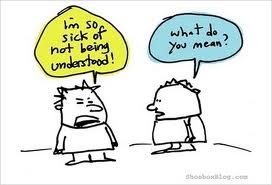
With such a strong emphasis on achievement, accumulation, and recognition in our society, we can easily become discouraged or disappointed with who or what we perceive ourselves to be, especially in how we stack up in the “pecking order” with those around us. That's why it is more important than ever that you learn to love yourself and recognize that the relationship you have with yourself is more important than any other.
Being happy with ourselves is a choice that each of us can make every day by taking simple and practical steps to develop habits of happiness. It starts with creating an environment to work and live in that reduces our stress and work load and brings order and ease, making our work and our living easier.
This uplifting environment can also provide us the experience of soothing tranquility rather than focusing on the disorder and chaos that often defines the working and living environments we find ourselves in.
Cleaning out desk drawers, closets, discarding excess, and re-defining what is important to keep and what feels good to get rid of is a first step to creating a peaceful and happy living or working space. Creating an environment that truly resonates with our values is like building an oasis in the desert. By eliminating the need to accumulate more and more “things” around us, we can unburden ourselves in creating a more orderly, relaxing, and peaceful space to live and work in.
This is also true with friends and acquaintances. Just like with material things, we can also accumulate unnecessary or unwanted relationships that can make demands on our time and energy and often insert negativity or sap our physical or financial resources. Clearing out the toxic or unhealthy relationships we may have can bring personal renewal and further our sense of happiness and contentment.
Take the time to appreciate family. For most of us, there are few individuals who have done more for us than our family members. This includes anyone and everyone in our family who support us, are there when we need them, and provide a “safe harbor” throughout our lives.
Losing loving family members can be devastating but no more so than when we fail to appreciate them as they are helping us along life’s bumpy road. By taking time to give back and express our gratitude to those who care and nurture us will not only bring them pleasure and a sense of being appreciated, but it will give us a reminder of how loved and cared for we are, allowing us to feel more content and happy with being who we are. This reminds you to stop and love yourself too.
For more information about this topic you can access a free excerpt from the bestselling book Changing Behavior: Immediately Transform Your Relationships with Easy to Learn Proven Communication Skills by visiting www.changingbehavior.org.
FREE Whole Health Consultations available.
888-354-4325 Take charge of your health!



 Like most healthcare practitioners, I often hear clients discuss their fear of loving or trusting another person after they have been terribly disappointed or hurt in a romantic relationship.
Like most healthcare practitioners, I often hear clients discuss their fear of loving or trusting another person after they have been terribly disappointed or hurt in a romantic relationship. "Mind is the Master Power that molds and makes, and we are mind. And ever more we take the tool of thought, and shaping what we will, bring forth a thousand joys, or a thousand ills. We think in secret, and it comes to pass, environment, is but our looking glass." James Allen
"Mind is the Master Power that molds and makes, and we are mind. And ever more we take the tool of thought, and shaping what we will, bring forth a thousand joys, or a thousand ills. We think in secret, and it comes to pass, environment, is but our looking glass." James Allen



